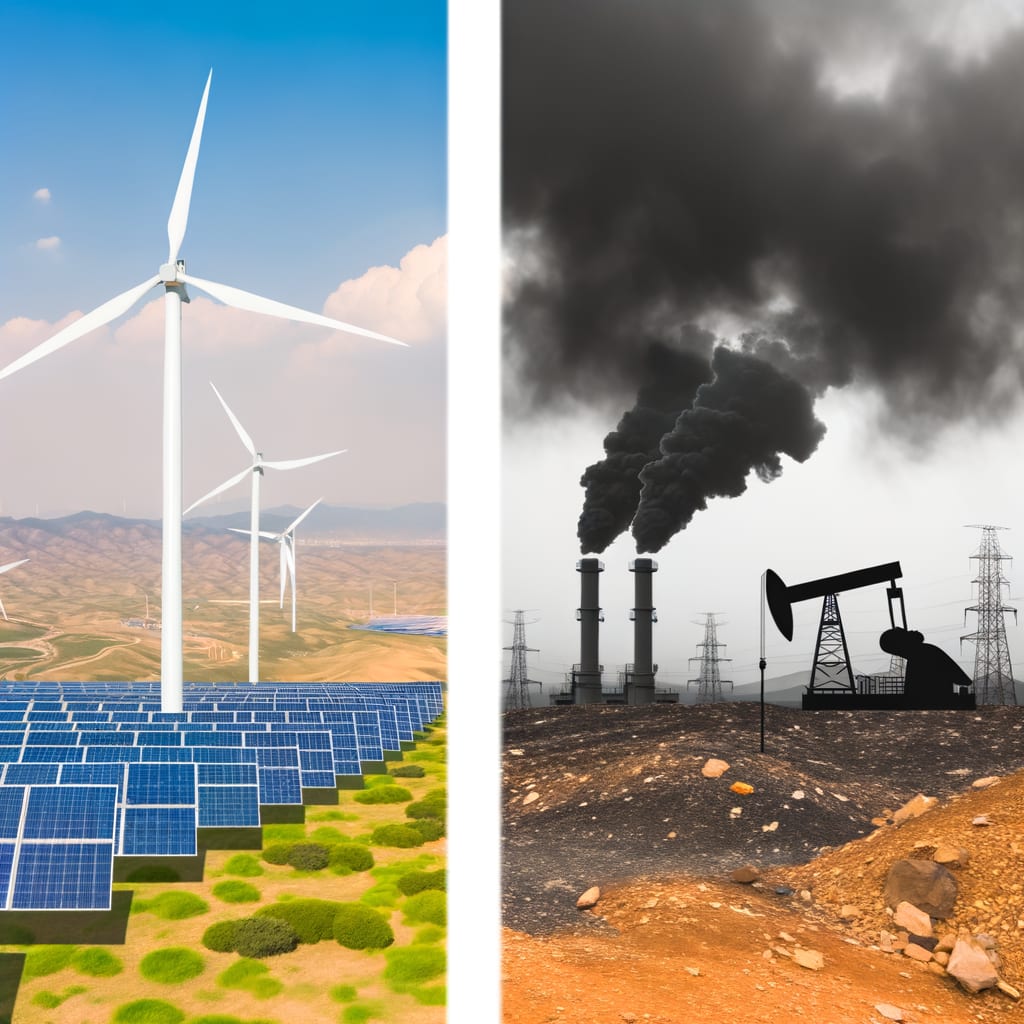China's Renewable Energy Investments in Sharp Contrast to US Fossil Fuel Subsidies Amid Global Climate Crisis
China's vast investment in renewable energy resources, including solar, wind and batteries, is helping stem the global growth of fossil fuel usage, even as its manufacturing and financing continue to contribute significantly to CO2 pollution, according to a report by Ember, as cited by the New York Times and Al Jazeera. This comes at a time when the US, under President Donald Trump's administration, has been ramping up fossil fuel subsidies, which now stand at nearly $31bn per year, according to a study by Oil Change International reported by The Guardian.
The Global Energy Landscape
The energy sector is undergoing a significant transition, with discussions around climate, geopolitical, and geoeconomic changes influencing the pace and direction of this shift. However, contrasting narratives are emerging across the globe, with China leading the clean energy revolution and the United States increasing subsidies for fossil fuel firms. Meanwhile, the European Union, a stronghold of environmental policy, is grappling with setting its climate targets ahead of the upcoming COP30.
A Stark Contrast in Energy Policies
China's renewable energy investments are on track to end an era of global growth in the use of coal, oil, and gas, a move that could significantly influence the worldwide energy transition. However, this progress is contrasted by the fact that China also leads in CO2 pollution, a situation that underlines the complexity of the energy transition.
In the United States, an abrupt shift in energy and climate policy since Trump took office has resulted in a significant jump in greenhouse gas pollution. This policy shift could slow the pace of US emissions cuts by as much as half the rate achieved over the past two decades, according to the Rhodium Group.
The Implications of Energy Policies
The divergent energy policies of China and the United States have significant implications for the global climate crisis. On one hand, China's investments in renewable energy resources are helping to curb the growth of fossil fuel usage. On the other hand, the US's increased subsidies for fossil fuel companies are pushing up global emissions.
This situation has sparked criticism from scientists, with more than 40 researchers publishing a critical evaluation of five processes aimed at manipulating the Arctic and Antarctic to mitigate the impacts of climate change. They warned against controversial approaches to cooling the planet, stating that they are unlikely to work.
The Current Status and the Way Forward
Despite the contrasting energy policies, the global community continues to face a monumental task in tackling the climate crisis. Scientists have linked major carbon emitters to worsening heat waves, indicating the urgent need to reduce emissions. Meanwhile, a report by the Business Council of Australia suggests that the government would need up to $530bn worth of capital investment to achieve a 2035 emissions target of 70% or more.
As the world continues to grapple with the climate crisis, the energy policies of major players like China and the United States will continue to play a crucial role in shaping the global response.

